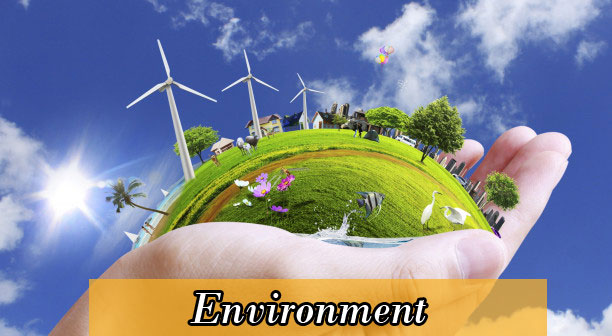IELTS HOPECO Vocabulary: Environment 2

- Climate change: Climate change, which is often called 'global warming' refers to changes in weather patterns including:
✓ changes in rainfall patterns which result in flooding and droughts
✓ a rise in sea level.
Climate changes can be caused both by natural forces and by human activities.
- Compost: A mixture of decaying organic matter such as leaves, wood and manure. Compost is used in gardening and agriculture to fertilize and enrich the soil.
- Conservation: Protecting, maintaining or improving natural resources to keep them safe from destruction or degradation and conserve them for future generations. Clean rivers and lakes, wilderness areas, wildlife, healthy soil and clean air are natural resources.
- Dead zone: Area of water containing low levels of oxygen in which fish, plants and other aquatic life find it difficult to survive.
- Deforestation: Destruction of forests to make land for agriculture. Cutting down trees which provide oxygen and absorb carbon dioxide is seen as a cause of increased greenhouse effect. Deforestation also entails the destruction of animal habitats.
- Desalinisation: Desalination is the removal of salts from saline water to obtain fresh water suitable for animal and human consumption or for irrigation.
- Desertification: The change from once fertile land into desert as a result of factors including climatic variations and human activities (overgrazing by animals, deforestation, poor irrigation practices).
- Disposable: Refers to material designed to be thrown away after use.
- Drought: A prolonged period of abnormal dryness, with little or no rainfall.
- Dump: Location where garbage, rubbish or waste is taken and just dumped without environmental controls. Problems associated with dumps include multiplication of disease-carrying organisms together with air and water pollution.
- Ecology: The study of the relationship of living things (plants, animals and humans) with each other and with their environment.
- Ecosystem: A community of plants, animals and other organisms living in an area which provides what they need in order to survive. The different species depend on the environment and the environment depends on them. An ecosystem can be as small as a tiny pool or as large as a huge desert.
- Emission: The release or discharge into the air of pollutant substances such as gas or smoke.
- Endangered species: Animals and plants in danger of becoming extinct.
DU HỌC UNIGLOBE
10/3 Nguyễn Thị Minh Khai, Phường Đa Kao, Quận 1, TP.HCM
ĐT: (08) 35 173 345 – 35 173 678
Email: info@uniglobe.edu.vn
Website: www.uniglobe.edu.vn




bình luận